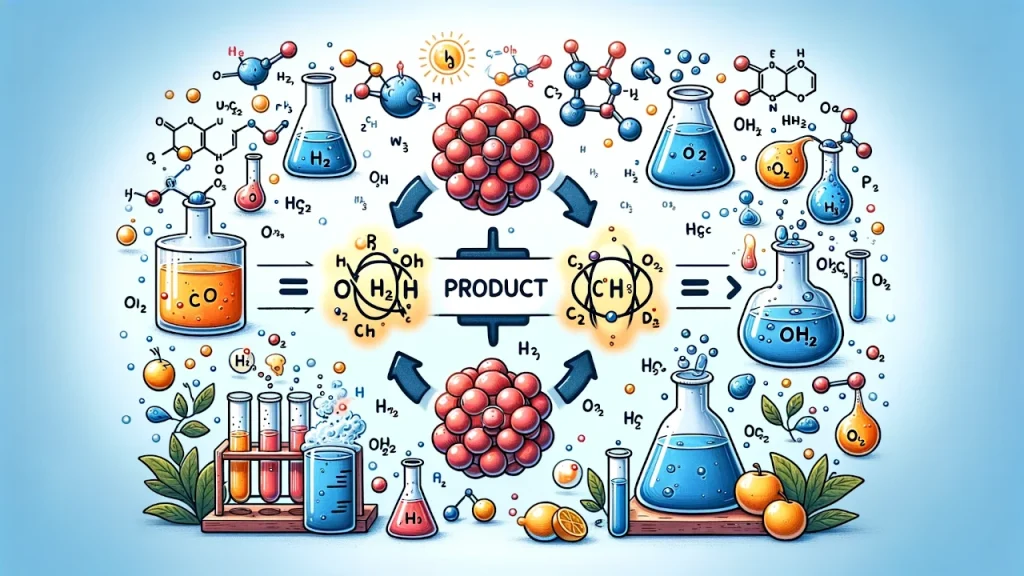Thank you for visiting! Our website is a free online chemistry dictionary containing over 1,800 chemistry terms and definitions.
We invite Everyone to use our dictionary of chemistry terminology to help further their knowledge, students and teachers alike. To start browsing the dictionary, choose a letter to list all the terms starting with that letter.
You can search our dictionary using the search box provided.
Our collection of chemistry terms and definitions cover all areas, including: organic chemistry, inorganic, biological, physical, and analytical chemistry.
Students of all study levels use our site to find solutions and help for their problems, questions and projects.
—–
Whether a chemistry student, professional, or simply curious, our Chemistry Dictionary is a valuable resource for everyone.
We strive to provide clear, concise, and accurate definitions for all things chemistry, along with supplementary information and examples to help you better understand the concepts at hand.
Our goal is to offer clear, concise, and accurate definitions in the field of chemistry. We supplement these with extra information and examples to aid comprehension of the concepts.
—–
Popular Terms |
What is Chemistry?
Before exploring our comprehensive collection of terms, definitions, and resources, let’s address the basic query: What is chemistry?
Chemistry is the scientific study of matter, its properties, and the changes it undergoes. Fundamentally, chemistry aims to understand how atoms, molecules, and compounds – the world’s building blocks – interact and transform. Chemistry is often termed the “central science”. It links physics, biology, and other natural sciences. This connection allows for enhanced understanding and manipulation at the molecular level.
Chemistry is a diverse and multifacete field, with various branches such as organic, inorganic, physical, analytical, and biochemistry. Each branch explores the complex details of chemical reactions and processes. These insights contribute to a wide array of fields. They aid in creating new materials and medicines, understanding biological mechanisms, and investigating environmental phenomena.
Types of Chemistry
Organic Chemistry
Organic chemistry is the branch of chemistry focusing on the study of carbon-containing compounds, their structures, properties, synthesis, and reactions. The unique capability of carbon to forge strong bonds with other atoms, particularly itself, leads to a plethora of diverse organic molecules. These molecules display varied properties and functions.
This field plays a crucial role in in understanding life’s chemistry. It includes studying biomolecules like carbohydrates, proteins, lipids, and nucleic acids. Additionally, organic chemistry is integral to the development of new materials, pharmaceuticals, and agrochemicals, making it a vital area of research and innovation.
Biochemistry
Biochemistry is the branch of chemistry that investigates the chemical processes and substances occurring within living organisms. By exploring the complex molecular interactions in biological systems, biochemists seek to understand the underlying mechanisms of cellular function, growth, development, and disease.
This interdisciplinary field combines elements of biology, chemistry, and physics to study the structures and functions of biomolecules such as proteins, nucleic acids, lipids, and carbohydrates, and their roles in metabolic pathways, genetic information transfer, and cellular signaling. Biochemistry has far-reaching applications in areas such as medicine, genetics, nutrition, and environmental science.
Inorganic Chemistry
Inorganic chemistry is the branch of chemistry that deals with the study of elements and their compounds, excluding those based on carbon-hydrogen bonds (which fall under organic). This vast field encompasses the entire periodic table and includes the study of metals, non-metals, and semi-metals, as well as coordination chemistry, solid-state chemistry, and organometallic chemistry.
Inorganic chemistry plays a significant role in the development of advanced materials, catalysis, and energy production, with applications ranging from electronics and superconductors to pigments, coatings, and fertilizers.
Analytical Chemistry
Analytical chemistry is the branch of chemistry concerned with the qualitative and quantitative determination of chemical components in various materials, substances, and environments. This field involves the development, optimization, and application of analytical methods and instrumentation to accurately measure, identify, and characterize chemical species.
Also vital in numerous industries, including pharmaceuticals, food safety, forensics, environmental monitoring, and quality control. Common analytical techniques include spectroscopy, chromatography, mass spectrometry, and electrochemistry, among others.
Physical Chemistry
Physical chemistry is the branch of chemistry that investigates the underlying principles governing chemical phenomena by applying the concepts and methods of physics. This field seeks to understand the fundamental behaviors and properties of molecules and chemical systems at the atomic and molecular levels.
Physical chemistry is divided into several subdisciplines, such as thermodynamics, quantum chemistry, kinetics, and statistical mechanics. By exploring the relationship between energy, structure, and reactivity, physical chemists contribute to diverse areas of research and application, including materials science, surface science, and molecular modeling.

Chemistry Dictionary Questions & Answers
What is Chemistry-Dictionary.com?
Chemistry-Dictionary.com is an online dictionary that provides definitions and explanations of chemistry-related terms and concepts. It serves as a reference for students, teachers, and professionals in the field of chemistry.
What kind of terms are included in the chemistry dictionary?
The chemistry dictionary includes terms and definitions used in chemistry. It covers subjects such as organic and inorganic chemistry, biochemistry, physical chemistry, analytical chemistry, and environmental chemistry.